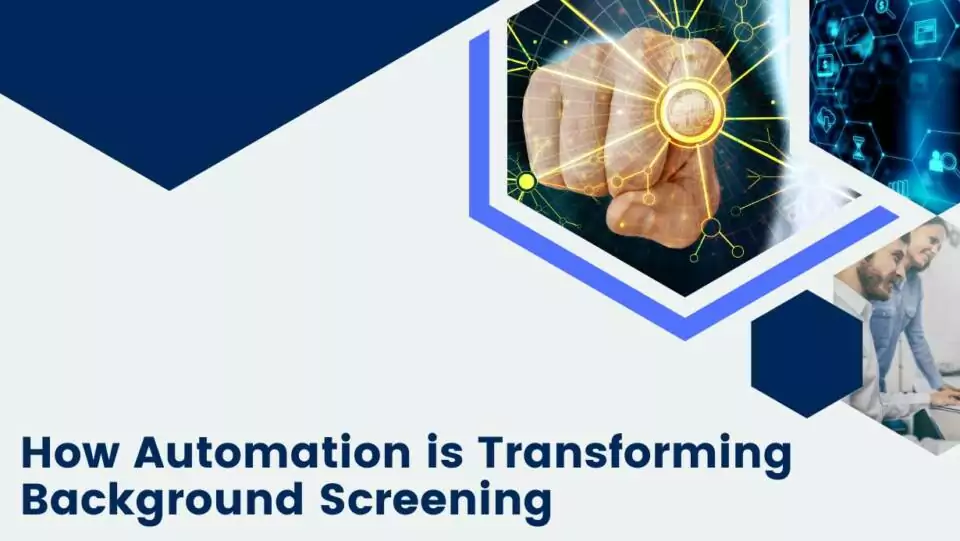In the digital age, automation has emerged as a powerful force reshaping industries and processes across the board, and background screening is no exception. With advancements in technology and the widespread adoption of automated tools and platforms, background check sites are revolutionizing the way background checks are conducted, offering enhanced efficiency, accuracy, and insights for employers and individuals alike.
In this exploration, we delve into the transformative impact of automation on background screening, exploring current trends, future prospects, and key considerations for navigating this digital landscape.
The Rise of Automation in Background Screening
Traditionally, background screening has been a labor-intensive and time-consuming process, requiring manual data entry, verification, and analysis. However, with the advent of automation technologies, background screening companies are streamlining and accelerating these processes, enabling faster turnaround times and more comprehensive screenings.
Automation tools and platforms leverage advanced algorithms, artificial intelligence (AI), and machine learning to collect, process, and analyze vast amounts of data quickly and accurately. By automating repetitive tasks such as data entry, record retrieval, and report generation, background screening companies can free up human resources to focus on more complex tasks and decision-making processes.
Enhanced Efficiency and Accuracy
One of the primary benefits of automation in background screening is enhanced efficiency and accuracy. Automated tools can scan thousands of records and databases in a fraction of the time it would take a human analyst, reducing turnaround times and improving the speed of results delivery.
Moreover, automation reduces the risk of human error inherent in manual processes, such as data entry mistakes or misinterpretation of information. By standardizing procedures and applying consistent criteria, automation ensures greater consistency and reliability in background screening results.
Comprehensive Data Analysis and Insights
In addition to efficiency and accuracy, automation enables background screening companies to conduct more comprehensive data analysis and generate deeper insights into candidates’ backgrounds. By aggregating and analyzing data from multiple sources, including criminal records, credit reports, employment history, and social media profiles, automated tools can identify patterns, trends, and correlations that may not be immediately apparent to human analysts.
For example, AI algorithms can flag discrepancies or inconsistencies in an individual’s employment history, detect patterns of fraudulent behavior, or predict the likelihood of future criminal activity based on historical data. These insights provide employers with valuable information to make informed hiring decisions and mitigate potential misconduct or dishonesty risks.
Ethical and Legal Considerations
While automation offers numerous benefits for background screening, it also raises important ethical and legal considerations that must be addressed. Employers must ensure that automated screening processes comply with applicable laws and regulations governing data privacy, discrimination, and consumer rights.
For example, under the Fair Credit Reporting Act (FCRA) in the United States, employers must provide clear and conspicuous disclosures to candidates before conducting background checks and obtain their written consent. Additionally, employers must adhere to the principles of fairness and non-discrimination in employment decisions, ensuring that automated screening processes do not result in disparate treatment or disparate impact on protected groups.
Moreover, employers must prioritize data security and integrity when using automated screening tools, implementing robust safeguards to protect against unauthorized access, data breaches, and misuse of personal information. This may include encryption, access controls, regular security audits, and employee training on data security best practices.
Future Directions and Opportunities
Looking ahead, the future of background screening is likely to be shaped by ongoing advancements in automation technology, regulatory developments, and industry trends. As AI and machine learning evolve, background screening companies will harness these technologies to improve further the efficiency, accuracy, and insights generated by automated screening processes.
Additionally, the regulatory landscape governing background screening will likely evolve in response to emerging technologies and privacy concerns. Employers must stay informed about changes to background check laws and regulations and adapt their practices accordingly to ensure compliance and ethical conduct.
Ultimately, automation holds the potential to revolutionize background screening, offering enhanced efficiency, accuracy, and insights for employers and individuals alike. By embracing automation technology while upholding ethical standards and regulatory compliance, background screening companies can leverage the power of automation to make informed decisions and mitigate risks in today’s fast-paced and dynamic business environment.
Stay updated with all the insights.
Navigate news, 1 email day.
Subscribe to Qrius

